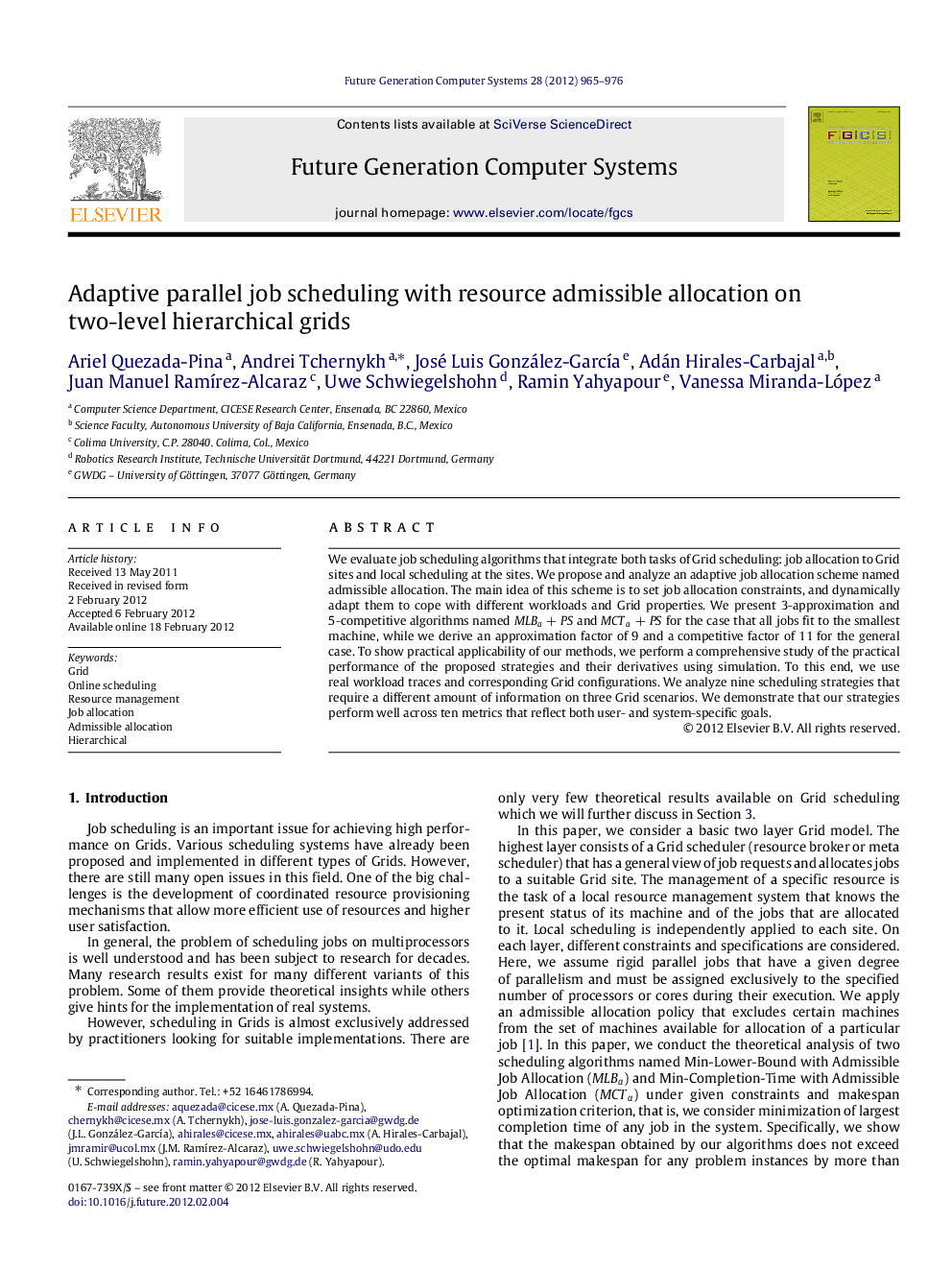| Article ID | Journal | Published Year | Pages | File Type |
|---|---|---|---|---|
| 425992 | Future Generation Computer Systems | 2012 | 12 Pages |
We evaluate job scheduling algorithms that integrate both tasks of Grid scheduling: job allocation to Grid sites and local scheduling at the sites. We propose and analyze an adaptive job allocation scheme named admissible allocation. The main idea of this scheme is to set job allocation constraints, and dynamically adapt them to cope with different workloads and Grid properties. We present 3-approximation and 5-competitive algorithms named MLBa+PS and MCTa+PS for the case that all jobs fit to the smallest machine, while we derive an approximation factor of 9 and a competitive factor of 11 for the general case. To show practical applicability of our methods, we perform a comprehensive study of the practical performance of the proposed strategies and their derivatives using simulation. To this end, we use real workload traces and corresponding Grid configurations. We analyze nine scheduling strategies that require a different amount of information on three Grid scenarios. We demonstrate that our strategies perform well across ten metrics that reflect both user- and system-specific goals.
► We propose an adaptive job allocation scheme with an admissible factor to cope with different workloads. ► We present 3-approximation and 5-competitive algorithms for large Grid site scenarios. ► We derive an approximation factor of 9 and a competitive factor of 11 for the general Grid scenario. ► We perform a comprehensive study of the practical performance of the strategies using simulation. ► We analyze scheduling strategies that require a different amount of information.
